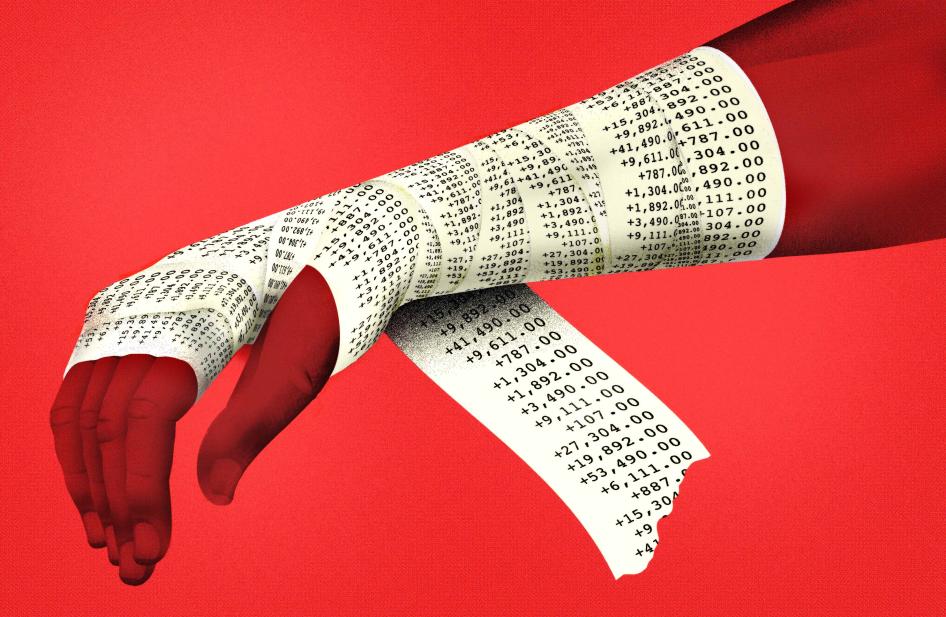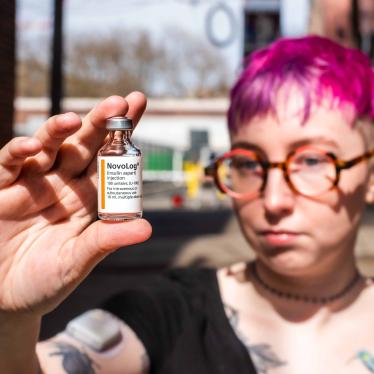(Washington, DC) – The United States government’s failure to adequately regulate private nonprofit hospitals and to provide quality healthcare alternatives undermines access to health care, Human Rights Watch said in a report released today.
The 62-page report, “In Sheep’s Clothing: United States’ Poorly Regulated Nonprofit Hospitals Undermine Health Care Access” describes how the US government’s lack of guidance and oversight allows privately operated tax-exempt hospitals to spend far less on making healthcare services accessible for people without the means to pay than the massive public subsidies they receive. In 2020, for example, nonprofit hospitals collectively received about $28 billion in tax benefits but only spent about $16 billion on free or reduced-price “charity care,” according to the Kaiser Family Foundation.
Human Rights Watch documented how many nonprofit hospitals operate more like for-profit corporations, charging high fees and aggressively pursuing medical bills against people who cannot pay.
“Nonprofit hospitals are contributing to medical debt and engaging in abusive billing and debt collection practices,” said Matt McConnell, economic justice and rights researcher at Human Rights Watch. “The reason this keeps happening is the absence of clear guidelines and the federal government’s inadequate enforcement of existing regulations.”
Human Rights Watch reviewed reports from nongovernmental organizations, government and academic studies, data from federal departments and agencies, medical literature, and nationally representative surveys. Human Rights Watch also compiled media accounts and studies from across the US, which document tens of thousands of lawsuits brought by nonprofit hospitals against patients in recent years.
Human Rights Watch found that the US model of subsidizing privately operated hospitals with tax exemptions to increase the accessibility of hospital care for uninsured and underinsured patients is poorly regulated, allows for abusive medical billing and debt collection practices, and undermines human rights, including the right to health and the right to social security.
Privately operated nonprofit hospitals account for nearly 60 percent of the more than 5,000 community hospitals across the US. Each year, private nonprofit hospitals receive public subsidies collectively worth tens of billions of dollars, largely in the form of tax exemptions, in exchange for providing “community benefits,” such as free or reduced-price health care for uninsured and underinsured patients.
The US heavily relies on this “charity care” by nonprofit hospitals to provide care for people who cannot pay for treatment. But federal authorities’ lack of guidance and oversight gives these hospitals wide discretion over how much they spend on making care accessible for people who cannot pay, who qualifies for this assistance, and how far they will go to collect debts from patients unable to pay their bills.
Because of inadequate regulation, some nonprofit hospitals engage in exploitative medical billing and debt collection practices, including through lawsuits and selling debt to third-party debt collectors.
Not all US nonprofit hospitals are engaged in these practices and they are not alone in contributing to the country’s medical debt crisis. But many of these charitable institutions are failing to fund accessible health care in equal measure to the public subsidies they receive.
There seems to be little difference between how much for-profit and nonprofit hospitals spend on free and reduced-price care. For example, a study from the nonpartisan National Bureau of Economic Research found that charity care accounted for only 1.5 percent of the median nonprofit hospital’s expenses in 2018. The median for-profit hospital spent nearly the same that year, with 1.4 percent of expenses on charity care.
This profoundly flawed system also affects other rights, as the money required to pay for expensive hospital care or service medical debt can come at the expense of covering other necessities such as housing, education, and food. This also reinforces existing forms of structural discrimination, disproportionately affecting women, communities of color, people with low incomes, and people with disabilities.
The US should ensure equal access to quality health care, regardless of a person’s ability to pay. To meet this standard, the US should move away from its charity-dependent model of hospital services towards one that is affordable for all.
In its place, the US should consider measures taken by many other high-income countries, such as creating a public healthcare system that is universally accessible for all, regardless of people's ability to pay, universal health insurance coverage, or some combination of these two.
In the short term, the Internal Revenue Service and the Centers for Medicare and Medicaid Services, the principal regulators of nonprofit hospitals, should adopt and amend policies to ensure that nonprofit hospitals provide health care benefits to their communities that are at least commensurate with the tax exemptions they receive.
National and state legislators and other relevant administrative authorities such as the Consumer Financial Protection Bureau should also regulate both nonprofit hospitals and third-party debt collectors to prohibit particularly harmful practices, for example the seizure of a person’s primary residence.
“Access to health care should not be based on people’s ability to pay,” McConnell said. “To realize the right to health, the US needs to rethink how to deliver health care to all. It can take a step in the right direction right now by ensuring that the public subsidies that nonprofit hospitals receive don’t support practices that saddle people with debt they can never repay.”








